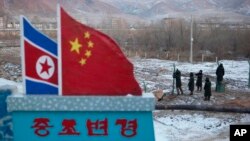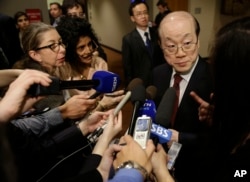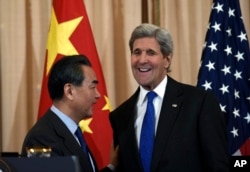China could reassert power and influence over North Korea by supporting tougher than expected international sanctions against the Kim Jong Un government.
Following North Korea’s fourth nuclear test in January and a rocket launch this month, there had been a growing perception that Pyongyang was forcing Beijing to close ranks with its strategic and economically dependent ally or risk massive instability, war, or even worse, U.S. domination of the Korean peninsula.
Dealing with North Korea
Many Chinese saw Pyongyang’s disregard for Beijing’s repeated calls for restraint and dialogue as humiliating. And the Xi Jinping government has been criticized as being increasingly impotent and unable to exert any influence over its ally.
In supporting the draft resolution submitted to the U.N. Security Council Thursday, Beijing has chosen to side with Washington and its allies to impose tough new sanctions on Pyongyang.
“That’s not good news for North Korea trying to drive a wedge between China and United States and China and South Korea,” said Bong Young-shik, a national security analyst with the Asan Institute for Policy Studies in Seoul.
And it could put Beijing in a stronger position in dealing with Pyongyang.
“China has been patient, but its level of patience has reached its limit,” said Woo Su-keun, a professor of international relations at Donghua University in Shanghai.
How far China will go to implement and enforce the sanctions remains to be seen.
China’s state run Global Times newspaper said in an editorial North Korea "deserves the punishment" of new sanctions, but China should also "cushion Washington's harsh sanctions to some extent."
UN sanctions
The new U.N. resolution seeks to cut off the trade and funding of North Korea’s nuclear program and its military, and to target the North Korean leadership and officials directly involved in these illicit activities. These include:
*A total arms embargo enforced through a mandatory inspection of all cargo; even food that transits into or out of North Korea via land, sea or air.
*Requiring member states to expel North Korean diplomats, companies and representatives involved in aiding or funding the banned nuclear and missile programs.
*Banning imports of highly refined aviation fuel, used for both civilian planes and rockets with no exemption for civil aviation.
*Limiting, and in some case banning, exports of North Korean coal, iron, gold, titanium and rare earth minerals.
*Requiring states to close North Korean bank accounts and prohibiting engagement with North Korean banks.
*Expanding banned luxury items for import into North Korea, prohibiting expensive watches, personal watercraft and snowmobiles valued over $2,000.
The resolution is unlikely to meet any significant resistance in the council since China, Pyongyang’s closest ally, has agreed to the language.
Dealing with South Korea
There has been speculation that Beijing’s support for U.N. sanctions might have come in exchange for Washington’s agreement to drop the controversial deployment of the Terminal High Altitude Area Defense (THAAD) missile defense system in South Korea.
The United States and South Korea agreed earlier this month to start talks about deploying the THAAD system to South Korea to counter the growing threat of North Korea's weapons capabilities after its Feb. 7 launch of a long-range satellite.
However, while meeting with the Chinese Foreign Minister Wang Yi this week, U.S. Secretary of State John Kerry said the U.S. is “not hungry or anxious or looking for an opportunity to be able to deploy THAAD.”
Wang had objected to a THAAD deployment in Korea, saying the system’s extended radar capability can potentially be used against Chinese military forces in the region. Chinese Ambassador to South Korea Qiu Guohong also said this week that China could possibly sever ties with South Korea over the THAAD issue.
South Korean officials criticized any attempt by China to exert influence over its national security concerns.
On Thursday, Admiral Harry Harris, the commander of U.S. forces in the Pacific reaffirmed that a decision over THAAD will be made by South Korea and the United States, and that if China wanted to prevent its deployment, it “should exert that influence on North Korea.”
Youmi Kim in Seoul contributed to this report.









